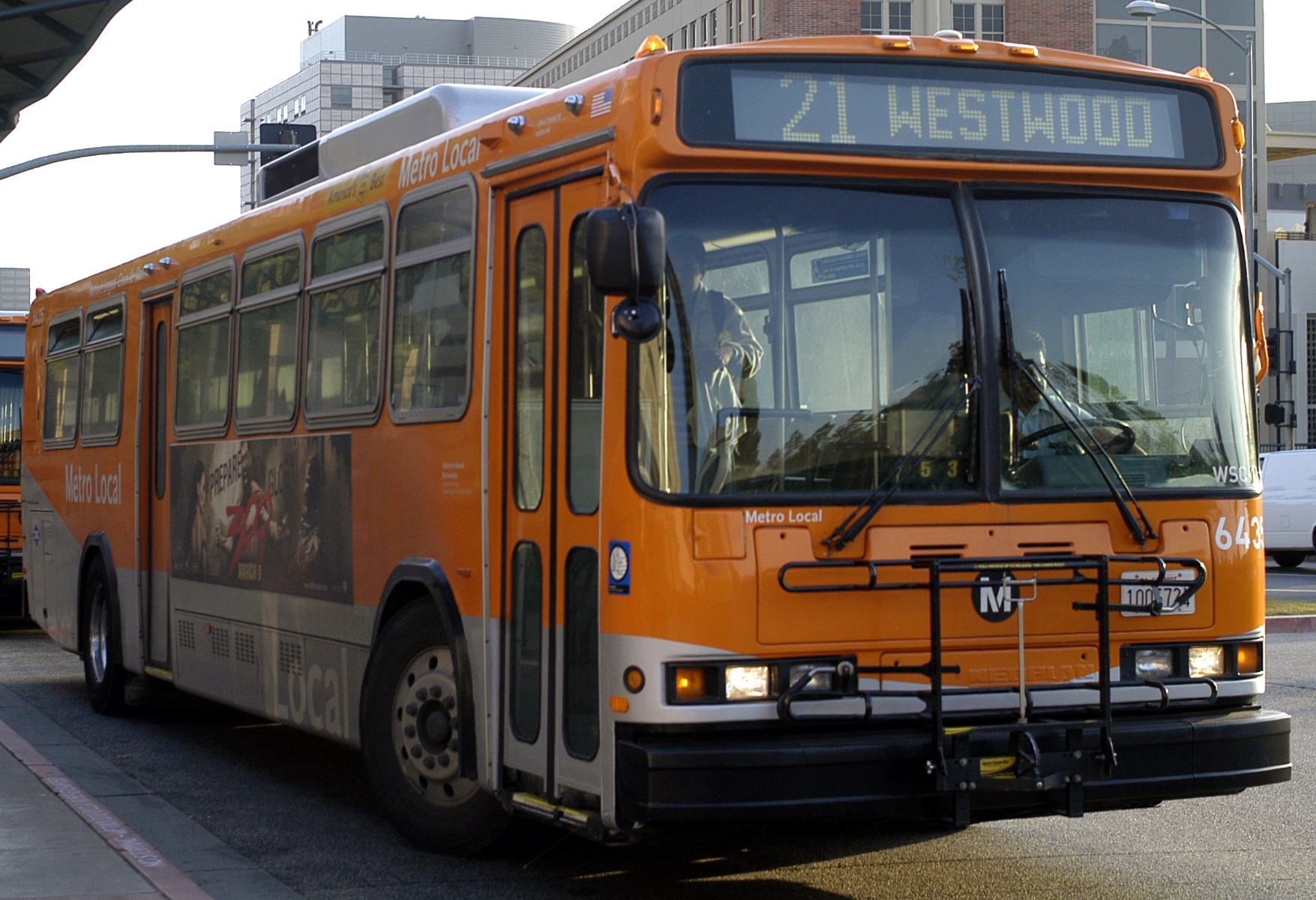One Metro bus servicing Wilshire Boulevard and Venice Boulevard stood out from the rest of the fleet ““ it still used diesel fuel.
The coach went off the road for good Wednesday, making the Los Angeles County Metropolitan Transportation Authority the only major U.S. transit agency to operate a fleet running exclusively on alternative technologies.
The other 2,227 Metro buses in Los Angeles already run on alternative fuels. The vast majority are compressed natural gas engines.
A tow truck pulled the vehicle out of its spot at the Metro Service Station during a ceremony Wednesday, the finish line of an effort spanning 20 years, said Metro spokeswoman Helen Ortiz Gilstrap. The Metro Board voted to start purchasing alternative fuel buses in 1993. Buses have an average life of 12 years, so the switching-over process was gradual.
UCLA Transportation has also embarked down the path toward cleaner fuel. As part of the UCLA Climate Action Plan, 38 percent of the entire fleet of UCLA vehicles, including Bruin buses, vanpool vans and other vehicles, run on alternative fuels, said Nurit Katz, UCLA sustainability coordinator.
UCLA has a goal to increase the number of partial zero-emission vehicles, including electric and hybrid vehicles, by 2014. In 2020, UCLA wants 70 percent of its vehicles to be partial zero-emission, Katz said.
“There is a solid commitment by the university to further increase alternative fuels, but we are already pretty far along,” she said.
Four years ago, the entire fleet of Bruin buses switched over to running on compressed natural gas, an alternative to diesel fuel, said David Karwaski, UCLA Transportation planning and policy manager.
Compressed natural gas buses are reported to be 97 percent cleaner than diesel. The difference in emissions is 3,000 pounds of greenhouse gases per day, Gilstrap said.
FlyAway buses, which run between LAX and Westwood, also run on compressed natural gas. Using such an alternative fuel produces significantly less greenhouse gas emissions, Karwaski said.
“This is something Los Angeles has a natural head start simply because of the air quality issues,” he said. “We were just fortunate to be ahead of the game.”
Metro is close to logging 1 billion miles on clean air fuel, Gilstrap said. Consumers do not have to pay more to ride the cleaner coaches.
Gilstrap, who grew up near UCLA, recalls playing on the playground as a small child in the 1960s. She said smog clouded the air with a brown haze.
“Now I can look out (of my office window) and see the entire San Gabriel Valley,” she said.
With reports from Samantha Masunaga, Bruin senior staff.
